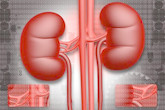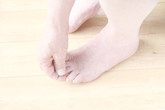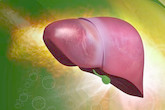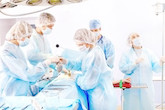The Importance of Controlling Blood Sugar Levels
As a basic energy source for much of the operations of your body, glucose is a very important aspect for your health. Glucose is used for most of the processes in your body including the production of ATP, food digestion and cellular respiration. Since it is easily used by your body without having to be broken down first or gotten from another area of your body, blood glucose is very important to the proper functioning of your body.
For adults, the normal blood glucose level should be between 70-140 mg. If your levels are below 70 mg, you could feel lightheaded, and when it drops below 20 mg you can become faint.
How Blood Sugar is Controlled Normally
Blood glucose levels are primarily controlled through the actions of insulin and glucagon, two hormones found in your body. Just a slightly higher amount of plasma glucose will bring on a lower glucagon secretion and cause the insulin secretion to rise. Or, the reverse will happen when plasma glucose levels lower. In order to insure that the glucose entry into your blood is balanced by its rate of withdrawal, you have your pancreas, liver, adrenal, pituitary and thyroid glands working together.
When extra glucose is discovered in your bloodstream by your pancreas, it will start supplying more insulin right away to counteract the glucose. The insulin then helps move the glucose to the site for receiving it for entry into your cells. Getting the glucose transport into adipose tissue and the muscle started is a detrimental part of the physiologic response to insulin. Your pancreas will also show how different it is by giving glucagon, which has the opposite effect of insulin. Instead it calls for the release of glycogen from your liver to make glucose when your blood sugar levels are too low. This is called glycogenolysis, or the breaking down of glycogen.
The main force in glucose control is glycogen, but the liver still holds the most power over the glycogen pathways. The hepatocytes or liver cells also become important participants in glucose and glycogen homeostatic mechanisms by supplying glucose when blood levels are down and by receiving glucose when blood levels are raised.
Blood Sugar Levels That are Too High or Too Low
When your blood glucose levels are abnormally low, you will likely experience what is called hypoglycemia. You may experience symptoms of sweating, hunger, tenseness, headache, cold hands and feet, stomach cramps, extreme tiredness and pale skin. Fasting, liver disease, pancreatic tumors plus other diseases can cause hypoglycemia. In some people with hypoglycemia, their body makes a large amount of insulin which is constantly removing glucose from the blood.
Extremely high levels of blood glucose can cause a condition called hyperglycemia. You will see this happen when your body doesn’t have enough insulin for glucose uptake. Frequent urination and high levels of sugar in your urine can be symptoms of hyperglycemia, which will cause you to be very thirsty. If it happens quite often and is not taken care of, it can lead to a diabetic coma.
There are several things that can cause high blood sugar such as Cushing’s syndrome, cirrhosis, cystic fibrosis and chronic pancreatitis, but probably the most well-known cause is diabetes. Diabetes can come in a few different forms and can cause many complications.
Complications from Diabetes
You can experience long-term complications from diabetes which develop over time. The longer you are living with diabetes and the less controlled your blood sugar is the higher the risk is for you to have complications. Diabetes complications can become disabling or even life threatening.
Nerve Damage – excess sugar can cause injury to the capillaries which feed your nerves, such as in your legs. You can experience numbness, tingling, pain or burning which generally starts at the tops of toes and fingers and then spreads upward.
Cardiovascular Disease – your risk for cardiovascular problems goes up quite a bit when you have diabetes, which includes heart attack, stroke, coronary artery disease with chest pain and the narrowing of arteries.
Foot Damage – you may experience poor blood flow in your feet which if untreated can cause blisters and cuts to become serious infections. Severe damage can require you to need a toe, foot or even leg amputated.
Kidney Damage – severe damage can lead to kidney failure or end-stage kidney disease that is not reversible, which requires a kidney transplant or dialysis.
Diabetes can also cause serious complications with your eyes, brain, skin, and mouth, plus you also have a higher risk of some cancers when you have diabetes.
Differences Between the Two Main Types of Diabetes
Type 1 Diabetes – Most of the time, people with this type of diabetes develop it as children. It develops due to a loss of beta cells in the Islets of Langerhans in the pancreas, which prohibits insulin production. People with Type 1 diabetes have to be on the lookout for skin disorders, have good eye car and dental health and watch for nerve damage in their feet.
Type 2 Diabetes – This disease results from a combination of genetics, lack of exercise and a poor diet. Insulin is released by the pancreas to lower your blood sugar levels, but too much fat can stop glucose absorption, making your body resistant to insulin. Because of this, the glucose stays in your bloodstream which raises your blood sugar levels and makes the pancreas release more insulin. This continues in cycle until your body becomes totally immune to insulin.
How to Naturally Control Your Blood Sugar Levels
Lowering blood sugar naturally is something that you can do yourself. First and foremost is losing weight if you are overweight. Your blood sugar levels can be significantly reduced when you lower your weight. Also, change your diet to a more healthy diet. Cut out starch loaded foods and foods that are high in sugar, like white bread. Eat smaller meals more often during the day, such as five to six smaller meals instead of the typical three large meals, which will help your body maintain steadier levels of blood sugar. You should also stay away from caffeinated drinks because they are stimulants which will increase the adrenaline that is released and therefore increase your blood sugar levels.
Including a regular exercise regimen is another important step to controlling your blood sugar levels. Both aerobic exercise and resistance training help to improve glycemic control for type 2 diabetes and you can see a greater effect when both are combined. You should also exercise if you have type 1 diabetes as well, but you may need to adjust your insulin does prior to exercise since exercise can make your blood glucose levels too low. Therefore, speak with your doctor first before starting any exercise routine.
Blood sugar control by diet and exercise can help a great deal in reducing your symptoms of diabetes. Discuss with your doctor the best exercise routines and diet for you, along with any medications that you may need, to help control your blood sugar levels so you can lead a healthier, happier life.
| Written by: | Michal Vilímovský (EN) |
|---|---|
| Education: | Physician |
| Published: | December 22, 2012 at 12:49 AM |
| Next scheduled update: | December 22, 2014 at 12:49 AM |
Related articles
Get more articles like this in your inbox
Sign up for our daily mail and get the best evidence based health, nutrition and beauty articles on the web.







Ache in left arm that you should not ignore
Alkaline water dangers: why you should not drink it
How to Avoid Sleepiness While Studying?
23 Foods That Increase Leptin Sensitivity
Low dopamine (e.g. dopamine deficiency): causes, symptoms, diagnosis and treatment options
Swollen taste buds: the ultimate guide to causes, symptoms and treatment
Thin endometrial lining: causes, symptoms, diagnosis and treatment
Pimples inside nose: the complete guide
Holes in tonsils: definition, symptoms, treatment and prevention
How to deal with an ingrown hair cyst
Allegra vs. Zyrtec vs. Claritin
Allergy to penicillin and alternative antibiotics
How to get rid of phlegm (excessive mucus) in throat? Detailed guide to medical and home remedies, symptoms and causes
What causes stomach ache after meals?
Liver blood test results explained